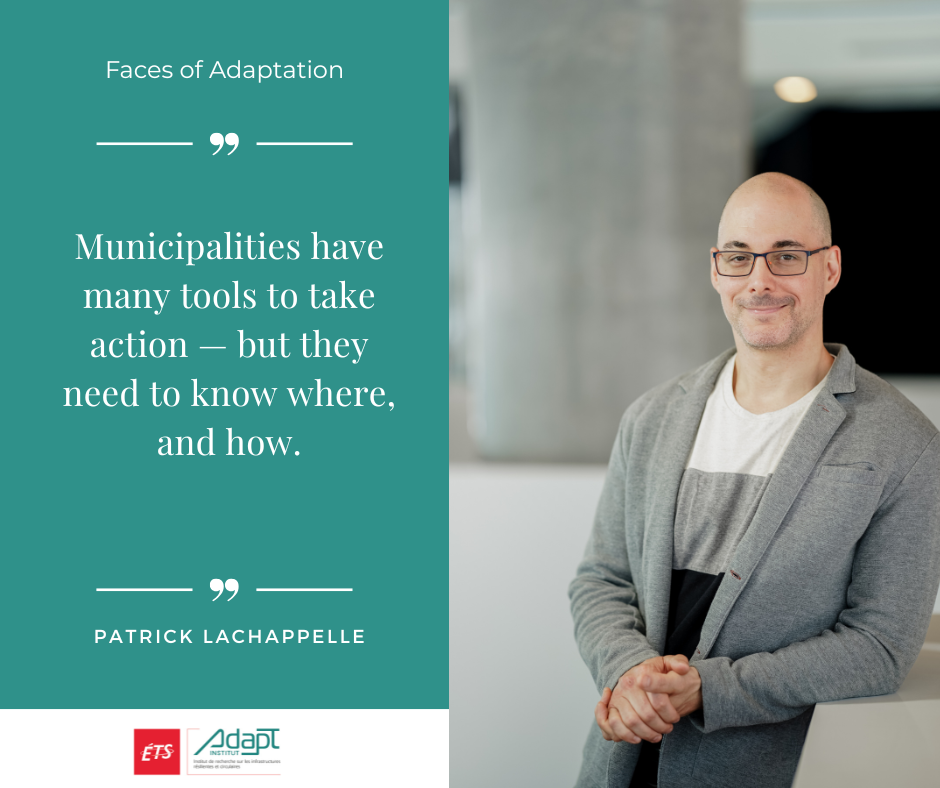Helping Local Communities Build Energy Resilience

Patrick Lachapelle, a PhD student in engineering at ÉTS, is developing new approaches to local energy resilience. As a recipient of a scholarship from the AdapT Institute for Research on Resilient and Circular Infrastructure, he aims to help municipalities move toward carbon neutrality.
What will this scholarship allow you to accomplish?
Practically, it will allow me to focus on my doctoral studies without financial worries. More broadly, it will help me carry out a research project that I hope will better equip municipalities to achieve carbon neutrality.
Briefly explain your research project.
I want to develop an energy modeling and analysis tool to help municipalities improve their performance and strengthen local energy resilience.
Most municipalities have very limited data on energy use in their territories. Even Hydro-Québec doesn’t have all this data. So, municipalities don’t really know where energy is being used or lost, making it hard for them to identify which actions they should prioritize.
Why is your research important in the context of climate change?
In the context of climate change, local energy resilience is becoming essential for municipalities seeking to reduce consumption and prepare for extreme events. My project fits within the context of the energy transition — the need to use energy more wisely, and even reduce it. Municipalities have many levers to act. For example, by encouraging higher residential density, they can help reduce energy consumption.
Some municipalities have already taken steps toward energy transition — Prévost, for example, has banned new natural gas connections in homes; Montreal has introduced numerous measures promoting active transportation; and Varennes has a public library that’s a very low-energy building.
In my opinion, better local energy management would help municipalities become more resilient and better prepared for the extreme weather events that are expected to become more frequent.
What led you to take an interest in these issues?
I’ve been interested in energy issues for a long time. My master’s thesis in urban planning focused on urban heat networks.
Also, as an urban planner who has worked in both municipal government and the private sector, I’ve always been surprised at how little attention energy issues receive.
With this PhD, I now have the opportunity to go deeper into this topic — it’s a natural continuation of my academic and professional path.
What will be the potential benefits of your research for society?
Broadly speaking, based on my findings, it may turn out that better energy management at the municipal level is one of the keys to helping Quebec reach its carbon neutrality goals.
Municipalities and citizens could reduce both their carbon footprint and their energy bills. They might even develop new sources of revenue and create more attractive living environments.
Everyone stands to gain.
